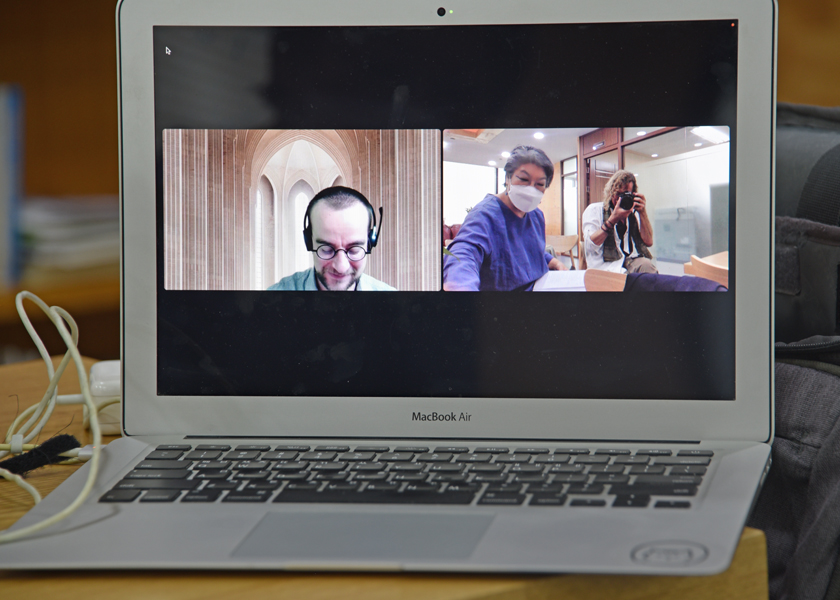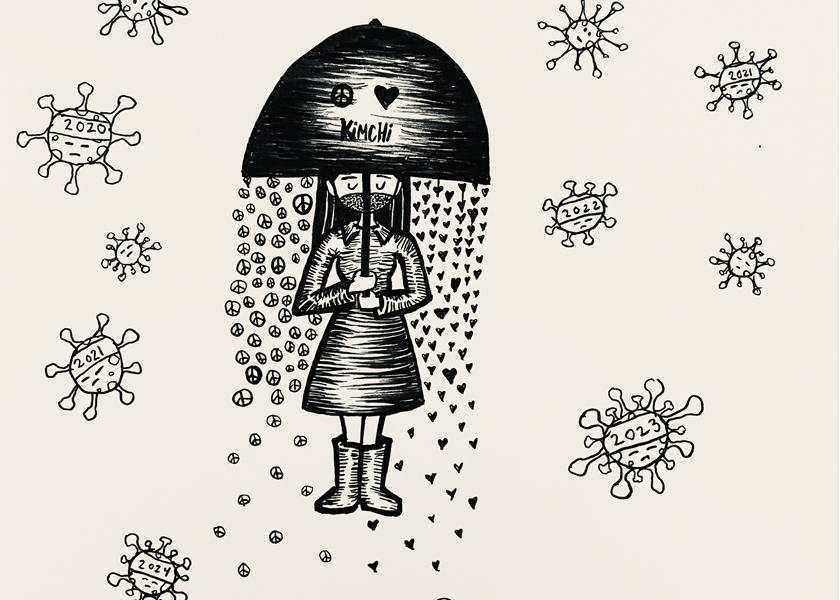How Rev. Dong-Hwan Lee became the defender of LGBTQ-plus Korean Christians | By Johan Eduard Francis (Summer 2022)
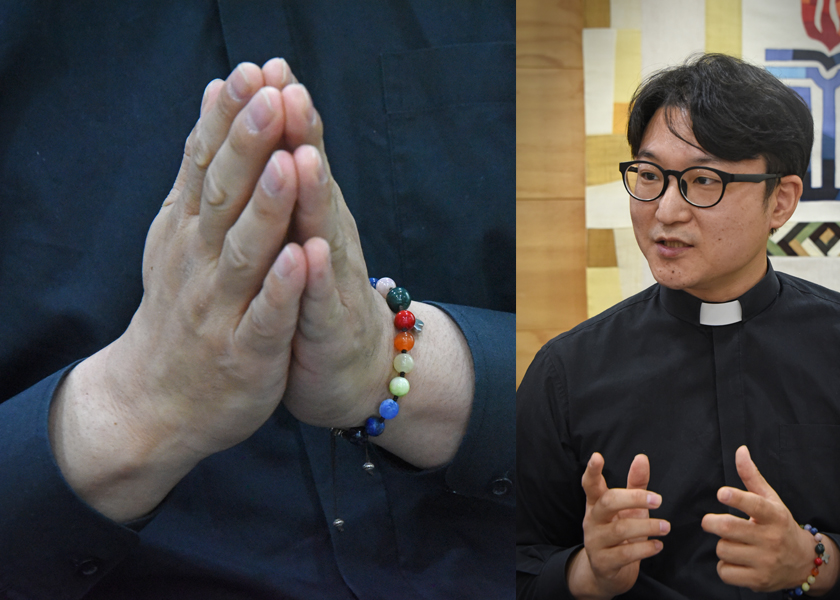
With K-pop, K-dramas, and the K-wave sweeping the world, Korean people are telling their stories rooted in their own cultural experience. One such story is that of Rev. Dong-Hwan Lee, whose own story has led him into the unfolding struggle of LGBTQ-plus rights in Korea. His activism is inspired by his conviction that the love of Christ for those who are marginalized is unconditional.
His story reminded me of another unique Korean phenomenon, that of people’s theology (minjung shinhak). It is a uniquely Korean hermeneutic (or interpretation) of the Gospel that “is firmly rooted in a particular situation, and growing out of the struggles of Christians who embrace their own history as well as the universal message of the Bible.”
Lee grew up in Seoul in what he describes as an ordinary family. His parents were regular churchgoers, but as a teen he drifted away from the church. It was only when he started high school, during a Christian youth camp, that he had a spiritual encounter which was a “baptism with fire” that made him want to live for God.
Unsure how he would exactly do this, after a year of waiting, he decided to become a minister and started studying at a Methodist Seminary. He graduated and eventually became the pastor of a small Methodist church in Suwon. At that church, he walked into the fight for LGBTQ-plus inclusion.
Lee recalled that a church member trusted him enough to come out to him as transgender. He was confronted with how to respond. Like many churches, his was “very spirit filled but also theologically conservative.” He remembered that his first thought was that being transgendered must be a sin. Yet in his spirit, he felt only love for the church member who was so vulnerable and trusting. He decided not to react, but to “pray and learn.”
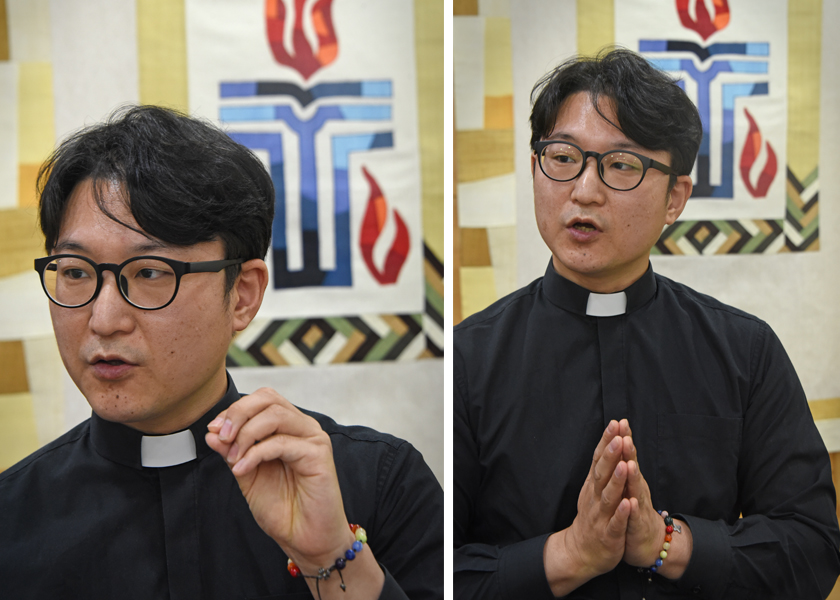
In opening his heart and his mind to LBGTQ-plus issues, Lee studied everything he could find, in texts from theology, medicine and psychology. In the Bible, he found only find seven passages that spoke about LGBTQ-plus people and soon realized that these must be put into context; not just the context of the times in which they were written, but also in the context of now.
He concluded that it is dangerous to impute one meaning into the text; that left only to engage with others to explore interpretations. It also led him to ask, “How would Jesus engage with this question today?” During this time of exploration, Lee was invited to give a blessing at the Incheon Queer Cultural Festival. He saw it as an opportunity to reach out the way Jesus would. Yet this very action of trying to engage like Jesus, brought him into conflict with his denomination, because its rules prohibit engaging or promoting LGBTQ-plus rights. Giving a blessing to the festival participants violated the rule.
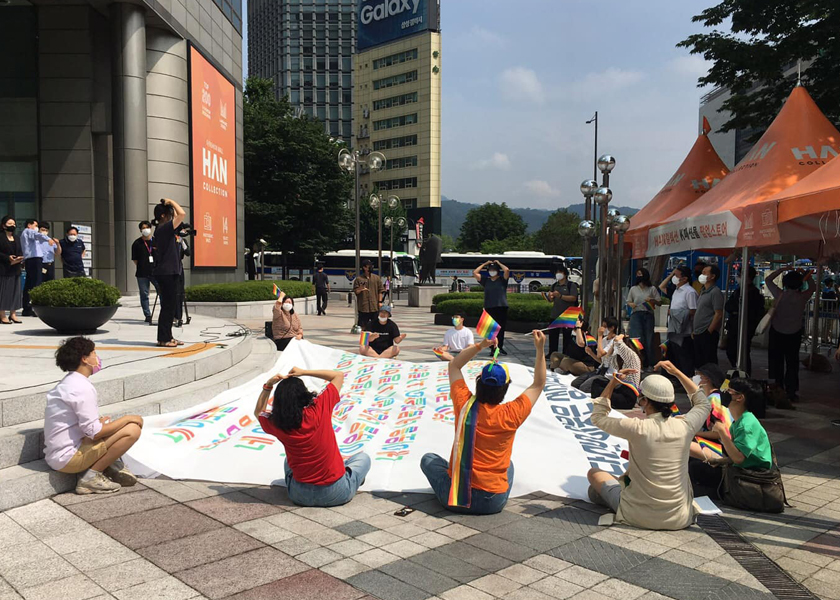
Lee was charged and then tried in a denominational tribunal for breaking the church law. He was found guilty, and suspended from ministry for two years. Many wanted him to just apologize and say he would never do it again, but Lee said he did not “just want to escape, but wanted to do what was right based on his convictions.” He decided to hold a sit-in action in front of the Methodist headquarters protesting his suspension and this rule, while asking for an appeal to his case. He thought and prayed during the sit-in, he said, and realized he was faced with a choice. He could “weather the two-year suspension or use it as an opportunity to change this rule and the culture in the church.”
Many in the Methodist church said Lee was just egotistical and should bring peace. He was blamed for the turmoil in the church. He has received a lot of online harassment and even threatening calls and mail. He said the greatest hurt coming out of this experience is the rejection of those he trusted. Understandably, he has been under stress, and his physical health has suffered.
It has indeed been difficult for Lee to stand up against a powerful organization to oppose a rule he believes is deeply flawed. Yet his conviction has been strong enough for him to persist. In the midst of all the turmoil, there has also been a lot of support, he said. His family sees the media attention as a good thing that indicates his stand is making a difference. He smiles when he shares how his wife told him, “to fear God and not man and be on the right side of history.”
This story of a reluctant advocate reminds me of Martin Luther, who wanted to change church rules that seemed to keep people away from the mercy of God. The way Lee wants to share God’s love and grace reminds me of John Wesley declaring that God’s grace is “bounty, or favor: free, undeserved favor.”
It is also uniquely Korean in that it draws on the spirit of Minjung Theology, which is deeply rooted in the stories of Christians; in this case queer Korean Christians, working to embrace their own history and the message of Christ.
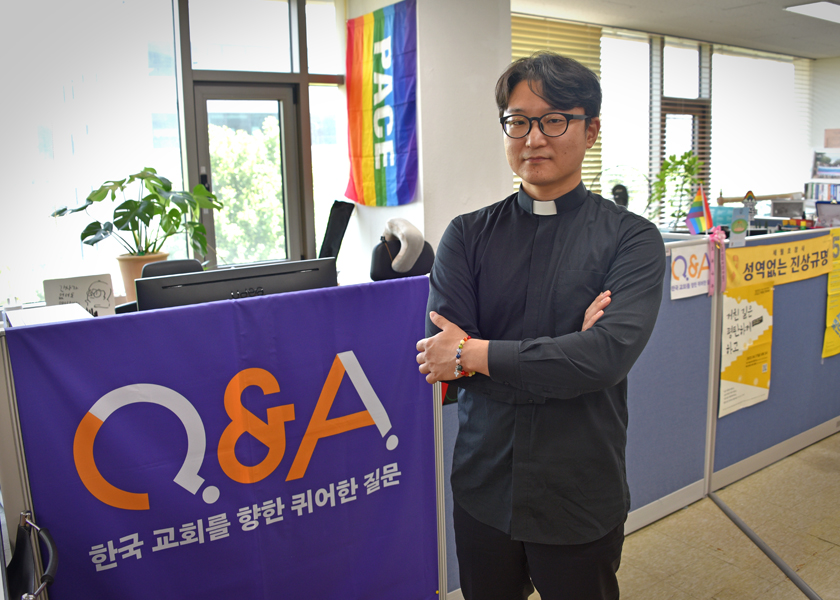
Born out of Lee’s story, a new organization has emerged under the name “Queer and Allies” or Q&A. A group of non-queer and queer Christians are asking the church a Queer question. The group seeks to be part of the larger story of Christianity. It is inviting, not demanding, that the church enter into a conversation about how one can be both queer and a Christian. The group intends to meet five goals: Engaging in regular worship; offering counseling; offering anyone a chance to tell their own story; supplying a way to be together in community; and allowing mourning and writing liturgy for those who have lost their lives.
The Q&A’s overall goal is not to force change, but to engage the church with the stories of queer Korean Christians, who are living faithful and fruitful lives. The ultimate goal is that Q&A stories will “change the ethos of the church, and so change society,” Lee said.
In this storytelling mission, queer Christian expats and especially Korean adoptees can be a voice of support and encouragement to this fledgling organization. Although Lee is concerned about the possible backlash against storytellers, he acknowledges how stories of queer Christians globally have the potential to “give hope and affirmation to their Korean brothers and sisters,” and show how the Gospel carries a wide grace.
Lee said prayer from others will also support the mission. Lee has appealed his suspension, and the outcome of the appeal could be a watershed moment in the movement for queer Christians in Korea. An acquittal would open the door to more dialogue; no acquittal could keep the doors closed for a long time. Supporters could also ask the Q&A group what they need, or share a story to encourage them.
Although Lee’s story is uniquely Korean, it is also very universal in its message of God’s love and mercy to the marginalized in society. Sitting down with Lee, my first impression was that of a gentle, humble man. When he started to tell his story, I could hear the fire and conviction of his heart. The story of this unlikely leadership is an invitation to all of us to learn, like Lee, to listen to the stories of those around us.
